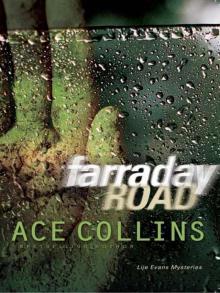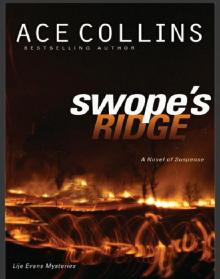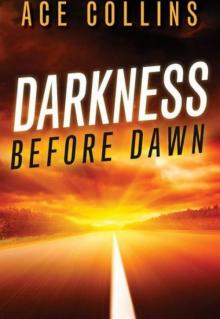- Home
- Ace Collins
Stories Behind the Best-Loved Songs of Christmas Page 4
Stories Behind the Best-Loved Songs of Christmas Read online
Page 4
Both “The First Noel” and the Christmas Yule log tradition found their way to France around the fifteenth century. Supposedly the song was introduced to the French people by British minstrels. Like the English, the common people of France embraced the music and the message. They also gave it their own twist: Children in this country often sang this carol as a round.
“The First Noel” finally was published by William Sandys in 1833. A lawyer by trade, Sandys loved music and spent his spare time collecting both French and English folk songs. In his book on Christmas folk songs he included “The First Noel.” Already a favorite with the peasant class, by the mid–1800s, when the Church of England began to use new songs during services, “The First Noel” found universal acclaim.
Today this song, obviously inspired by the story of the birth of a Savior and probably written by a common, illiterate man, remains one of the most loved carols of all time. Still, one must wonder why “The First Noel” has survived while thousands of other folk songs about Christmas—many of them better written—have been forgotten. Most likely because the writer brought a rare, jubilant spirit to the song. Anyone who has sung “The First Noel” would have no doubt that the composer not only believed every word he wrote but was excited about the story he was sharing. “The First Noel,” therefore, represents the real essence of Christmas, the one element that eludes so many during each holiday season: the announcement of Christ’s arrival on earth. While the tradition of the Yule log has all but died out, the message of “The First Noel” still burns brightly.
7
GO TELL IT ON THE MOUNTAIN
The contribution of unknown African American slaves to Christian music is remarkable. As a largely uneducated people, longing for freedom, suffering incredible cruelty and humiliation, many still somehow managed to encounter the powerful touch of the Holy Spirit in ways that manifested themselves in songs of unparalleled majesty and beauty.
Even more amazing than the songs themselves is the fact that any survived at all. Many of these composers of spirituals could not read or write. For the most part, their works were unpublished for decades and passed along only in the oral tradition. A few songs were spread from the fields to small slave churches along roads via work gangs, and eventually to white churches and even large concert halls in both the South and North. Many, however, were lost, their inspirational lessons in song forgotten, as were the testimonies they contained. Perhaps all of them would have been gone had it not been for a very special American family and the dynamic voices of a college choir.
Not long after the Civil War, a man named John Wesley Work was an African American church choir director in Nashville, Tennessee. A scholar as well as a musician, Work had a deep interest in music that defined the experience of the Negro in America. One of the few educated African Americans in the South, Work felt the new generation of black southerners might best understand the importance of spirituality by learning the songs their ancestors sang during the days of slavery.
In Work’s choir were several members of the Fisk Jubilee Singers from the nearby black college of the same name. As Work influenced the Jubilee Singers with his thoughts and music, the singers would pass that influence to the world through their uplifting arrangements of Negro spirituals. During an era when few Negroes were able to travel more than a few miles from their birthplace, the Fisk Jubilee Singers toured the world, appearing in England before Queen Victoria and at the White House in front of President Chester Arthur. Their music revealed a passion for life and living that few people had ever experienced, and they became a monumental force in first exposing the musical talents of African Americans.
John Work passed his love of music and history onto his son, John Wesley Work II. The latter became a folk singer, composer, and collector of Negro spirituals, and, eventually, a professor of history and Latin at Fisk College. His wife was the music teacher for the Jubilee Singers. Along with Work’s brother, Frederick, this second generation of Works kept the flame of spiritual music burning brightly and saved a huge number of Negro folk songs from being lost or forgotten.
There will always be some debate over who first uncovered the song “Go Tell It on the Mountain,” but Frederick Work was one of the first to note the song’s power and potential. The song had come from the fields of the South, born from the inspiration of a slave’s Christmas, and it was unique in that, of the hundreds of Negro spirituals the Work family saved from extinction, few had been written about Christmas. Most, as would seem only natural, centered on earthly pain and suffering, and the joy and happiness that only heaven seemed to offer. Yet here, standing against the backdrop of such haunting spirituals as “Sometimes I Feel Like a Motherless Child,” was “Go Tell It on the Mountain,” a triumphant piece that embraced the wonder of lowly shepherds touched by God at the very first Christmas.
When I was a seeker
I sought both night and day,
I asked the Lord to help me,
And he showed me the way.
Chorus:
Go tell it on the mountain,
Over the hills and everywhere,
Go tell it on the mountain,
Our Jesus Christ is born.
He made me a watchman
Upon a city wall,
And if I am a Christian,
I am the least of all.
Chorus
When I was a seeker
I sought both night and day,
I asked the Lord to help me,
And he showed me the way.
Chorus
John II and Frederick studied the words and the basic melody to “Go Tell It on the Mountain.” Not wanting to change the dramatic impact of the song’s lyrics, they left them intact, but the brothers did rearrange the music into an anthem-like structure that would suit choirs such as the Fisk Jubilee Singers. Beginning in the 1880s, that group took the song to the world.
As the Fisk Jubilee Singers introduced the song to the people throughout this country and beyond, many compared the melody to two other Civil War songs, “We’ll March Around Jerusalem” and “Tramp, Tramp, Tramp, the Boys are Marching.” The Work brothers might have been influenced by both of these folk songs, but neither of them could come close to the message and the power of the words that sprang from a lowly slave’s heart. With no hope of earthly freedom, probably unable to even read the Bible, this unknown slave imagined the emotions of shepherds as a powerful light from heaven shone down on them. Frightened by a power they couldn’t begin to understand, they were greeted by angelic voices trumpeting the birth of a Savior. Leaving their flock, not fully understanding why they were going, these confused men went to see a baby in the most humble of surroundings. And in that place, these shepherds found understanding, knowledge, and love. As crowds listened to the choir from Fisk perform the song, many were brought to tears, others to their knees.
In 1909, “Go Tell It on the Mountain” was published in Thomas P. Fenner’s book Religious Folk Songs of the Negro as Sung on the Plantations. Still, without the continued contribution of a third generation of the Work family, this song, and scores of other spirituals, would probably have faded away forever.
Like his father and grandfather, John Work III, a graduate of Julliard, was a devoted student of history and music. Embracing his family’s passion, this third-generation member of the Work family continued to uncover and save unknown spirituals, many times traveling hundreds of miles to seek out elderly slaves who had sung them in the fields. John Work III devoted years of his life documenting this important facet of American culture.
In the midst of the Great Depression, Work took another look at what his uncle and father had done with “Go Tell It on the Mountain.” Using their notes and arrangements as well as the materials he had dug up through interviews and research, he took the old song and reworked it one more time, adding a new arrangement and at least one new stanza. It is unknown if Work composed these new lyrics or simply found them during his research, but they fit perf
ectly with the words the Fisk Jubilee Singers had sung fifty years before, John Work III’s arrangement—the one we know today—was published in American Negro Songs and Spirituals in 1940.
Over the past fifty years, the popularity of “Go Tell It on the Mountain” has continued to grow. The song’s melody is infectious, but it is the spirit of the words that seem to provide the song’s real power. As an unknown slave revealed his own prayers and faith, he had little knowledge that the inspiration he felt—probably the only thing of value he ever possessed—would eventually touch millions around the world. Truly, this humble man did not tell the news only on the mountain, but “over the hills and everywhere.”
8
GOD REST YE MERRY GENTLEMEN
Oddly enough, understanding the original meaning behind this song—one of the most misunderstood carols of Christmas—also helps explain one of the most misused words describing Christmas itself. What Americans hear when they listen to “God Rest Ye Merry Gentlemen” is not anything like what the English peasants meant when they first sang this song more than five hundred years ago. Because of how wonderfully it tells the Christmas story, the song earned a prominent spot in Dickens’s classic novel A Christmas Carol. If people today fully understood its unique lyrics, most would probably designate “God Rest Ye Merry Gentlemen” as one of the most profound and meaningful hymns in the world.
Like so many early Christmas songs, this carol was written as a direct reaction to the music of the fifteenth-century church. During this period, songs used by organized religion for worship were usually written in Latin and had dark, somber melodies, offering singers and listeners little inspiration or joy. In fact, though few admitted it in public, most church members secretly disliked the accepted religious songs of the day. Yet the laymen of the time had no power over the way they worshiped and had to accept things as they were.
So, while they continued to go to worship, commoners created their own church music outside the walls of the cathedrals and chapels. In this way, the peasant class led a quiet rebellion against the tone of current religious music by writing religious folk songs that were light, lively, and penned in common language. These Christmas folk songs became the foundation of what are now known as Christmas carols.
“God Rest Ye Merry Gentlemen” was the most famous and most loved of all the early carols. Written with an upbeat melody and speaking of the birth of Jesus in joyful terms, the song may have shocked early church leaders, but it charmed their flocks. Not only did they sing to this carol, they danced to it.
The lyrics of the song reveal that the unknown writer knew the story of Jesus’ birth well. He included the high points of the gospel throughout the carol’s verses. The writer also fully understood the power of Christ and what his arrival meant to all who embraced it. In the case of this writer, comprehending the full and personal meaning of the birth of the Son of God brought forth enthusiasm and joy simply not found in any other church songs of the period. Though it might have been rejected by the church leaders, “God Rest Ye Merry Gentlemen” better presented the message of the first Christmas and the life of Jesus than did many of the songs used in formal worship of the day.
The carol was sung for hundreds of years before it was finally published in the nineteenth century. By that time—thanks in part to Queen Victoria’s love of such songs—it found favor in the Anglican church. Soon even the protestant English clergy of the Victorian era were enthusiastically teaching “God Rest Ye Merry Gentlemen” to their parishioners. Crossing the ocean to both Europe and America, the carol became popular throughout the Christian world. It is still sung in much the same way as it was five hundred years ago. The only problem is that, as a result of the evolution of the English language, few of today’s singers fully understand the beginning of each of the carol’s many verses.
God rest ye merry gentlemen,
Let nothing you dismay.
Remember Christ our Savior
Was born on Christmas day,
To save us all from Satan’s pow’r
When we were gone astray;
Chorus:
O tidings of comfort and joy,
Comfort and joy,
O tidings of comfort and joy.
From God our heavenly Father
A blessed angel came.
And unto certain shepherds
Brought tidings of the same,
How that in Bethlehem was born
The Son of God by name:
Chorus
“Fear not,” then said the angel,
“Let nothing you affright,
This day is born a Savior,
Of virtue, power, and might;
So frequently to vanquish all
The friends of Satan quite;”
Chorus
The shepherds at those tidings
Rejoiced much in mind,
And left their flocks a-feeding,
In tempest, storm, and wind,
And went to Bethlehem straightway
This blessed babe to find:
Chorus
But when to Bethlehem they came,
Whereat this infant lay
They found him in a manger,
Where oxen feed on hay;
His mother Mary kneeling,
Unto the Lord did pray:
Chorus
Now to the Lord sing praises,
All you within this place,
And with true love and brotherhood
Each other now embrace;
This holy tide of Christmas
All others doth deface:
Chorus
When people today say “Merry Christmas!” the word merry means “happy.” When “God Rest Ye Merry Gentlemen” was written, merry had a very different meaning. Robin Hood’s Merry Men might have been happy, but the merry that described them meant “great” and “mighty.” Thus, in the Middle Ages, a strong army was a merry army, a great singer was a merry singer, and a mighty ruler was a merry ruler.
So when the English carolers of the Victorian era sang the words “merry gentlemen,” they meant great or mighty men. Ye means “you,” but even when translated to “God rest you mighty gentlemen,” the song still makes very little sense. This is due to one last word that has a much different meaning in today’s world, as well as a lost punctuation mark.
The word rest in “God Rest Ye Merry Gentlemen” simply means “keep” or “make.” And to completely uncover the final key to solving this mystery of meaning, a comma needs to be placed after the word merry. Therefore, in modern English, the first line of “God Rest Ye Merry Gentlemen” should read, “God make you mighty, gentlemen.” Using this translation, the old carol suddenly makes perfect sense, as does the most common saying of the holidays, “Merry Christmas!”
You might wonder why, when most don’t fully understand the real meaning of “God Rest Ye Merry Gentlemen,” the old carol has remained popular. The world’s love for this song is probably due to its upbeat melody paired with the telling of the most upbeat story the world has ever known. Those who sing it naturally get caught up in the celebratory mood of the message, embracing the same emotions that those first to visit the baby Jesus must have felt. As the angel told the shepherds, “I bring you good news of great joy.” That joy and the power of faith can be felt and experienced in every note and word of “God Rest Ye Merry Gentlemen.” You just have to know how to translate the words into the language of the day in order to have a very “Mighty Christmas!”
9
GOOD CHRISTIAN MEN, REJOICE
One of the most uplifting of the ancient carols, “Good Christian Men, Rejoice” is the product of two men who were persecuted for their religious convictions, endured great personal hardships, suffered through lingering illness, and died in relative obscurity, never accepted by the church they loved. Though both vowed to serve the Lord and take the message of salvation to a lost world, both probably believed they had accomplished little of lasting value as they struggled to follow t
heir call. For Heinrich Suso and John Mason Neale, nothing could have been farther from the truth.
Heinrich Suso was born in 1295, the son of a German nobleman. Educated at the best schools, pampered in luxury, Heinrich was largely insulated from a world where only a precious few did more than endure each passing day. Poverty and disease were everywhere. The aptly named Dark Age was a time of cruelty, prejudice, and despair. A separation of people into social classes meant the very small, elite branch had almost everything and the rest of society had nothing. Sadly, there was no movement between classes; if you were born without means, you were doomed to live and die that way. And if you were born poor, for every laugh there were a thousand cries.
Suso, who could have risen through his family ranks to a ruling status in his native land, instead chose to be a servant. Accepting a call to the priesthood, he became a Dominican monk. If all he had done was serve in a parish, he would have probably remained unknown. Yet in 1326, the priest felt moved to write the Little Book of Truth, a vibrant defense of progressive thinking in the church. In his work, Suso justified taking the gospel and opening it in a way that would bring hope, compassion, and understanding to the common people. But instead of being held up as a man who truly understood the message that Jesus had brought to the earth, the priest was tried for heresy.

 Stories Behind the Best-Loved Songs of Christmas
Stories Behind the Best-Loved Songs of Christmas Farraday Road
Farraday Road Yellow Packard
Yellow Packard Swope's Ridge
Swope's Ridge Darkness Before Dawn
Darkness Before Dawn